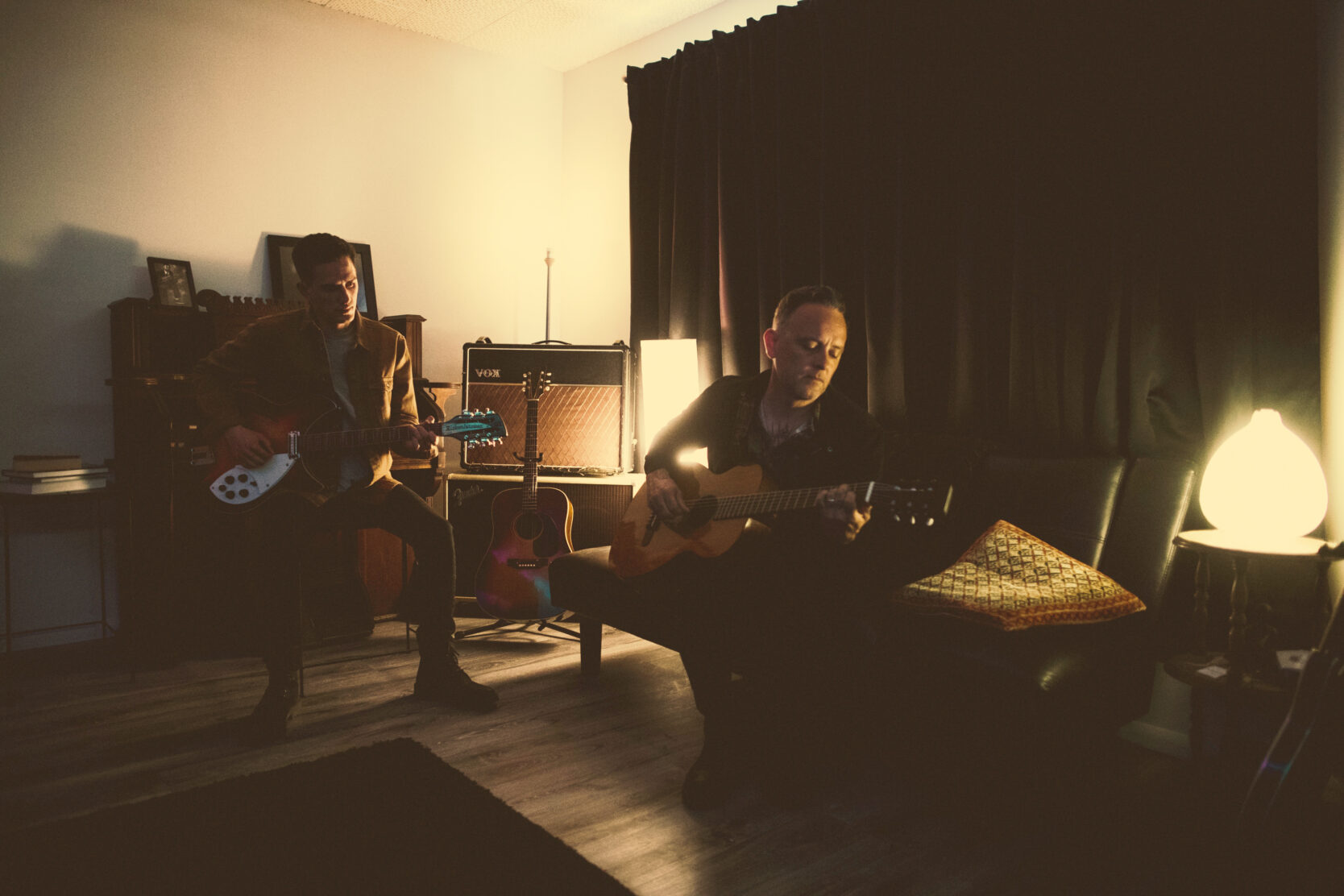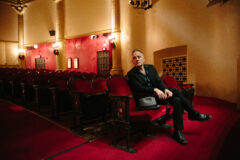Way back in the ancient days of October 2009, Dave Hause hit the road with Chuck Ragan (Hot Water Music), Jim Ward (At the Drive-In and Sparta), a slew of other revolving artists, and their acoustic guitars. It was the second annual Revival Tour — an alcohol-fueled romp featuring punk rockers playing acoustic, folksy versions of their songs (and sometimes others’ songs).
“The Revival Tour was like the inside of Chuck Ragan’s brain,” Hause laughs. “It’s kind of chaotic, really beautiful, and really musical. There’s the sacred and the profane going on at all times. Everybody’s pretty drunk, but everybody’s also tapped into the lifeforce of music — and I think that might be why you can’t repeat it unless he’s there.”
While everyone who was a part of the Revival Tour’s five-year run will likely remember the organic collaborations and loosely controlled musical chaos of the touring punk rock hoedown, few had their careers as impacted by it as much as Hause. Artists like Laura Jane Grace, Brian Fallon, Ben Nichols, and Dan Andriano were already largely successful with their primary bands, whereas Hause was introduced to new fans as a solo artist, many of whom had never heard his band, The Loved Ones.
By the time Hause returned to the Revival Tour in 2011 (and then again in 2012), The Loved Ones had unofficially gone on hiatus as Hause continued to grow as a roots solo act, releasing his debut full-length, Resolutions, in January 2011 and following it up with Devour in 2013.
A decade later, Hause —now with salt-and-pepper hair and a stubbly gray beard above his full tattoo sleeves and collection of vintage tees to complete the rugged Americana look — set to work on arguably his most ambitious album to date, Blood Harmony. The 43-year-old songwriter’s fifth album sees him not only work with his frequent collaborator and younger brother, Tim, but also producer Will Hoge and an all-star band of backing and session musicians ranging from E Street Band members to keyboardists for artists like Sheryl Crow and Sturgill Simpson to Brandi Carlile’s drummer.
“It was like what it must feel like when you write a movie script and then it gets picked up by a director who knows big actors,” Hause says excitedly from his studio over Zoom. “That’s essentially what happened. We had the songs, and then we talked to [Hoge], and he loved them and wanted to produce the record. He put the cast of characters together with our approval. When you tell me we can get [E Street Band bassist] Garry Tallent to play on the record, it would be like if somebody wrote a script and suddenly Daniel Day-Lewis was going to star in the movie. It took a minute to process how to go about the creative endeavor, because once the initial excitement dissipates, the work is still there. You have to put a little bit of that aside and say, ‘What’s best for the song? What’s best for the recording?’ Never mind who’s in here, you really have to serve that master.”
The album, out on October 22 on the Hause brothers’ own Blood Harmony Records, ended up as 10 impactful and moving tracks that are as personal to the folk-rocker as they are relatable to the audience. Accompanied by a “Making of” documentary offering a behind-the-scenes look at Hause’s collaboration with the multitude of musicians involved, Blood Harmony combines a catchy slice-of-life Americana sound that would make the Gin Blossoms envious with the poetic lyrics and imagery people have come to expect from Hause after a decade.
In a lot of ways, Blood Harmony is perhaps most similar to his early work, sharing a more mature version of the very human connections that made Resolutions and Devour fan favorites. It’s appropriate, particularly considering that Hause had to cancel his planned 20-stop tour for Resolutions’ 10th anniversary and move the entire celebration to the internet. As for his debut album, Hause still considers the songs “sturdy” — despite the fact that they were made by punk rockers who had no idea how to create a folky Americana album — but fully admits that the roller coaster of the past decade has changed his perspective on it.
“I was a different person then,” Hause says, clearly content with who he’s become, but not necessarily condemning the man he was a decade ago. “Going into making that album, I sort of made it on a lark. I was in The Loved Ones at the time and thought, ‘Oh, I’ll do this, get these songs out of my system, and then go back to my regularly scheduled program.’ I didn’t anticipate what would happen in any facet of my life. I had earmarked the songs for Devour for the next Loved Ones record, and I didn’t think that the solo thing would catch on like it did in Europe — which is sort of what started to steer things. I didn’t think I’d get divorced. I didn’t think I’d get remarried. You kind of think in your early 30s that this is the way it’s going to be, but that is not the case. For me, my 30s had so much change. I moved to California. I married my wife. We had our boys. I’ve now put out five solo roots records. It’s wild how different life got from back then.”
Of course, the last couple of years have been particularly unique for Hause — and everyone else. As someone who’s usually on the road either for his own music, in bands like punk rock supergroup The Falcon, or supporting his friends, it was a little odd for the Philadelphia native to be stuck at home for an entire pandemic. And while the official Blood Harmony full tour (both in Europe and America) isn’t happening until early next year, he’s recently hit the stage for a handful of shows at a time — both acoustically on his own and plugged in with a full band for shows supporting Social Distortion. But as many veteran artists are learning these days, it wasn’t quite as easy for Hause to rock out again after almost two years of primarily holding an acoustic guitar.
“I’ll admit this just because it’s funny, and funny is better than being embarrassed — my back hurt after a show of holding my Les Paul,” Hause says through a smile. “I was like ‘Tim, I’m getting old.’ He was like, ‘It’s not that you’re getting old. It’s that the muscle hasn’t been used. You’re up there with your left foot pounding, super focused, hyper tense with a guitar hanging off of that back muscle!’ I was like, ‘Oh, well, you’re being kind to your big brother…’ My back should not be fucking sore from 30 minutes of rock and roll.”





